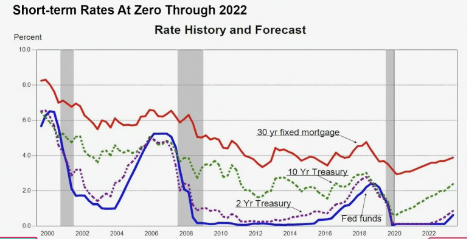This table does not consist of all companies or all readily available items. Interest does not back or recommend any business. Editorial Policy Disclosure Interest. com abides by strict editorial policies that keep our writers and editors independent and sincere. We depend on evidence-based editorial guidelines, regularly fact-check our content for accuracy, and keep our editorial staff totally siloed from our marketers. If the rate were to go up 1 basis point, it would increase to 3. 26%. If it were to go up 50 basis points, it would increase to 3. 75%. A 100-basis point increase would lead to a 4. 25% rate. If a loan rate is 5% and increases 20 basis points, that is the equivalent of raising the rate of interest by 0.
2%. If interest rates are at 4. 75% and drop to 4. 6%, that is a 15-basis point (0. 15%) decline. Although a basis point appears little, even a modest modification can make a huge distinction in the total interest you pay over the long term. Here is a chart demonstrating how overall payments on a $200,000 loan modification, based upon a 30-year fixed home loan of 3.
75%-- $926. 23 $333,444 $133,444 3. 85% 10 points $937. 62 $337,541 $137,541 3. 95% 20 points $949. 07 $341,668 $141,668 4. 25% 50 points $983. 88 $354,197 $154,197 * Rates are for instance only. Your rate will depend on existing home mortgage rates plus your credit rating. Don't confuse discount rate points (typically just called points) with basis points.

For instance, a point on a $200,000 loan would equal $2,000. When you pay discount rate points, you're essentially prepaying a few of the interest on a loan. The more points you pay at closing, the lower the interest rate will be over the life of the loan. This can help make month-to-month payments more budget-friendly and save money in interest over the long term.
Portfolio supervisors and financiers use basis points to suggest the percentage change in rate of interest or financial ratios in U.S. Treasury bonds, shared funds, exchange-traded stocks and real estate-based investments. Go to this website Specialists utilize mathematical terms to describe basis points however even if you're not a monetary analyst or lender, you can comprehend them, too.
Getting The How Do Interest Rates Affect Mortgages To Work
One basis point equals 0. 01%, or 0. 0001. One hundred basis points equates to 1%. How does this translate to home loans? Let's say you have an adjustable rate home mortgage (ARM). Your https://trentonkmuo177.jimdofree.com/2021/05/11/rumored-buzz-on-how-many-new-mortgages-can-i-open/ rate of interest is 3. 50%, then the interest rate modifications to 3. 75% at a later date. This suggests your rates of interest increased by 25 basis points.

You'll hear the term "basis points" often utilized in connection with home loans (what are interest rates now for mortgages). One basis point is 1/100 of 1 percent. While certainly not a large portion amount, basis points can be incredibly essential in mortgage circumstances. Because of the size of home loan, basis points although little numbers - what is the current index for adjustable rate mortgages. When you hear or read about an increase/decrease of 25 basis points, you must understand this indicates one-quarter of 1 percent.
01 percent in interest. what credit score do banks use for mortgages. Particularly important to large-volume home loan lenders, basis points-- even simply a few-- can imply the difference in between profit and loss. Economically speaking, home mortgage basis points are more crucial to loan providers than to customers. Nevertheless, this effect on lending institutions can also affect your mortgage interest rate.
25 or 0. 375 percent their offered home mortgage rate to debtors perhaps you. Basis points are popular with larger financial investments such as bonds and mortgages since. Unless you work in the world of financing, you might not understand the appeal of basis points (what credit score do banks use for mortgages). From a home mortgage perspective, small boosts in basis points can suggest larger modifications in the interest rate you may pay.
When you compare mortgage rates and terms, you will ultimately encounter basis points. For instance, you speak with a loan officer, informing him/her that you wish to lock-- ensure your rate at closing-- your rate for 60 days. The loan officer then recommends you that the lending institution charges 50 basis indicate lock your rate for that duration.
Excitement About What Is A Basis Point In Mortgages
Home mortgage rates tend to "lag" be a bit behind More helpful hints other market rate of interest. Comprehending basis points may assist you, to a degree,. If you are practically ready to make a home loan application, knowledge of basis points may assist you save some money. For example, you notice bond yields and costs increased by 20 basis points on Monday.